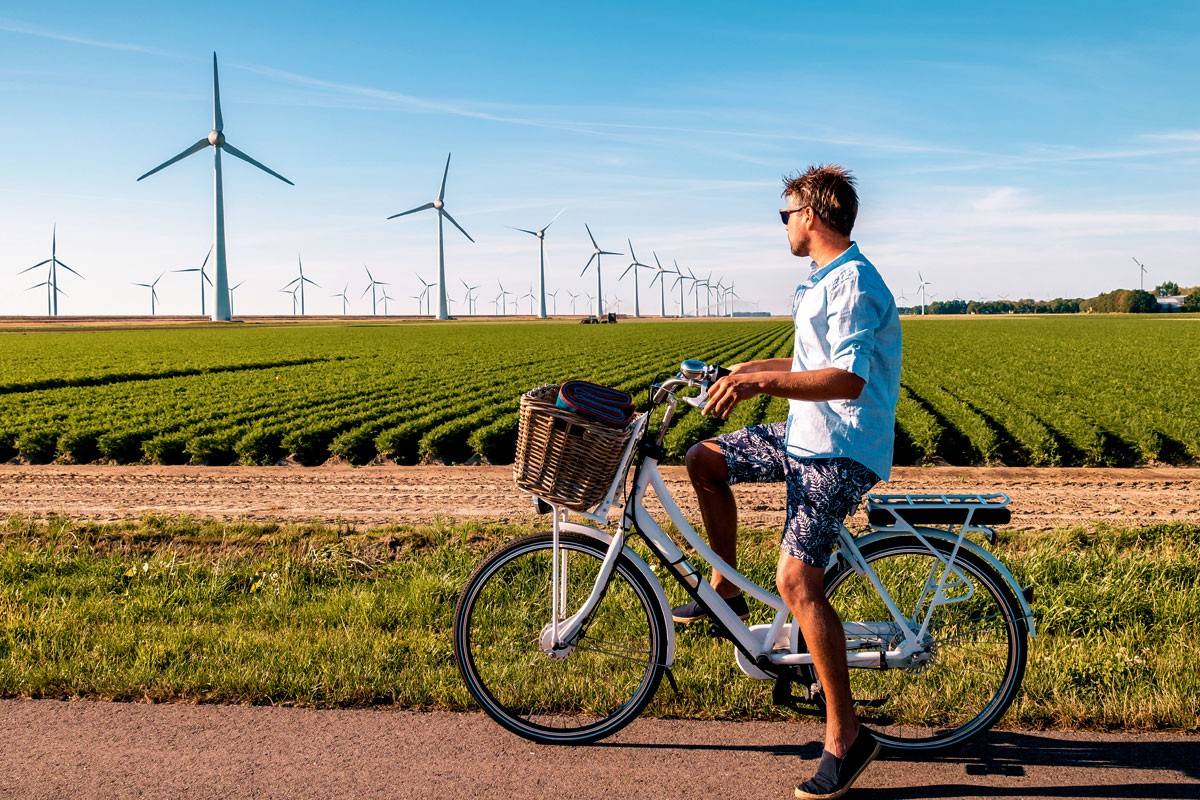New Research: Understanding Consumer Demand for Sustainable Travel Options

Skift Take
This sponsored content was created in collaboration with a Skift partner.
As travelers hit the road and take to the skies once again, they continue to seek out meaningful experiences, whether traveling with family, meeting up with far-flung friends, or searching for and booking lodging and destinations that align with their eco-friendly values.
According to Expedia Group Media Solutions’ recently launched Sustainable Travel Study, which includes insights into consumer interest and motivations for sustainable travel options, two-thirds of consumers want to see more information on sustainability from lodging and transportation providers, and half want to see this information from destination or tourism boards.
SkiftX broke down the major data points and trends in the Sustainable Travel Study — which surveyed 11,000 consumers in 11 markets around the world — to gain insight into attitudes, behaviors, and values around sustainability in travel.
The Sustainable Travel Landscape
The study found that 90 percent of consumers look for sustainable options when traveling, but 70 percent feel overwhelmed by starting the process of being a more sustainable traveler. They want to see an authentic commitment to sustainability, not just lip service. In fact, seven in 10 consumers have avoided a destination or transportation option because they felt it was not truly committed to sustainable practices.
What exactly does sustainable travel mean to consumers? According to the study, 69 percent see sustainable travel as “lessening environmental impacts,” 66 percent see it as “supporting local economies,” and 65 percent see it as “supporting local cultures and communities.” Consumers are already trying to make conscientious decisions that reflect these values, with 49 percent having bought from local stores and restaurants, rather than chains, and 46 percent having visited local cultural or historical sites.
The Price of Sustainable Travel
Consumers know that sustainability comes at a price, and they’re willing to pay for it. While 74 percent of consumers said it costs too much to be more sustainable when traveling, half said they would pay more for transportation, activities, and lodging if the option was more sustainable.
Aside from cost, the survey also found that nearly 70 percent of consumers are willing to sacrifice convenience to be a more sustainable traveler.
“Now more than ever, travelers are thinking about their impact on the environment and the communities they visit, and they are looking for trusted information and authentic commitments to inform their decisions,” said Jennifer Andre, global vice president of business development at Expedia Group Media Solutions. “With insights into how consumers are thinking about sustainable travel and their expectations of the travel industry, our new research reveals how destinations and travel brands can spotlight sustainability information and initiatives to capture demand from the ever-growing audience of mindful travelers.”
Indeed, driving awareness of sustainability commitments can boost business. Expedia Group Media Solutions’ Q1 2022 Travel Trend Report found that at the end of March the 4,300 hotels that had signed the UNESCO Sustainable Travel Pledge, which motivates properties to publicly commit to actions that will reduce the environmental impact of their businesses, saw a nearly 25 percent increase in week-over-week bookings, compared to a 15 percent increase for non-pledged hotels heading into 2022. Additionally, pledged hotels had a higher average daily rate and longer length of stay than the global average across Expedia Group points of sale. That is good news for the more than 9,000 hotels that have signed the pledge to date.
Challenges and Opportunities in Sustainable Travel
How can travel companies respond to the growing consumer preference for sustainable travel practices? According to the study, consumers want to see sustainable travel information during the trip-planning process, preferably in the form of listings or info pages on travel sites, as well as in marketing campaigns.
“Travelers around the world come to the Expedia Group platform for trip inspiration, planning, and booking, and we know providing sustainability information is a key component of helping them minimize their environmental footprint while traveling,” said Aditi Mohapatra, vice president of global social impact and sustainability at Expedia Group. “As part of our broader sustainability strategy, we are committed to working across the industry to shape a more sustainable travel and tourism sector, including providing more information on sustainability and educating travelers about greener choices through content across our platform”
Destinations and travel brands that are promoting sustainability are finding those messages resonating with travelers. Along with signing the UNESCO Sustainable Travel Pledge, Iberostar Group also conducted a recent campaign with Expedia Group Media Solutions on educating and inspiring travelers with its Wave of Change initiative to promote the responsible consumption of seafood and improve coastal health around its properties. The campaign not only drove awareness of Iberostar’s real commitment to sustainability and helped drive year-over-year demand, but also outperformed its traditional marketing campaigns. Furthermore, the campaign creative featuring a call to action for the Wave of Change initiative delivered a higher return on ad spend than the destination-led creative.
The bottom line? Travel companies should take steps to respond to growing consumer demand and offer truly sustainable products and services, clearly communicate about their efforts, and illustrate the value of making more conscientious choices.
Please join us for a special presentation by Jennifer Andre of Expedia Group Media Solutions at the Skift Sustainable Tourism Summit on June 29, 2022.
This content was created collaboratively by Expedia Group Media Solutions and Skift’s branded content studio, SkiftX.




